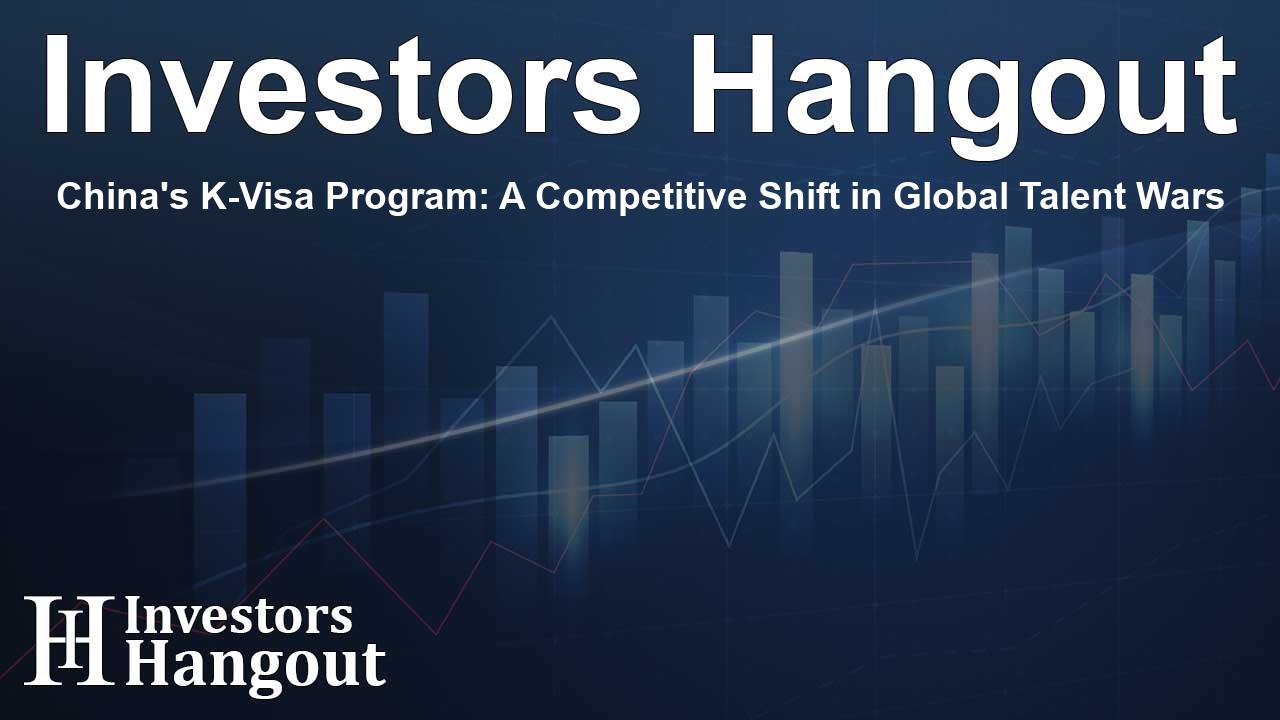China's K-Visa Program: A Competitive Shift in Global Talent Wars

A New Era of Visa Opportunities in China
The introduction of the K-visa program in China marks a significant development aimed at attracting skilled talent from around the globe. This initiative comes as the nation strives to enhance its competitive edge in various technological sectors.
Understanding the K-Visa Program
The K-visa program, recently launched, is specifically designed for foreign professionals, focusing particularly on young graduates in Science, Technology, Engineering, and Mathematics (STEM). Unlike traditional visa options, it does not require sponsorship from local employers, allowing for greater flexibility in entry and stay duration.
Program Launch and Features
Officially introduced earlier this month, the K-visa aims to simplify the process for international professionals. This new approach is particularly appealing for individuals eager to contribute to China's rapidly evolving technology landscape.
Impact on Local Workforce
However, the K-visa has sparked considerable debate within China. Many citizens express concern regarding its implications for local graduates, fearing an overflow of foreign talent could diminish their opportunities. Additionally, worries about the potential for fraud in applications have made headlines, stirring discussions about the program's integrity.
China's Need for Foreign Talent
As China's job market faces challenges, including a high urban unemployment rate and a record number of college graduates entering the workforce, the K-visa represents a strategic move. The government is keen to attract foreign expertise in areas where it currently trails behind its U.S. counterparts, capitalizing on advancements in fields like semiconductors and biotechnology.
Comparison with U.S. Visa Policies
In contrast to China’s welcoming stance toward foreign talent, the United States has recently tightened its visa regulations. This shift under the Trump administration has raised the costs associated with H-1B visas, prompting a wave of criticism regarding its potential effects on job creation and innovation.
Economic Concerns in the U.S.
With the recent increase in H-1B visa fees to $100,000, concerns abound regarding the resulting impact on job growth in the U.S. Many believe that such policies may drive away top talent seeking opportunities abroad, which could stifle future innovation and economic expansion.
Responses from Industry Leaders
While some industry leaders, like Jensen Huang, CEO of Nvidia, support the changes in U.S. immigration policy, there remains a palpable fear regarding the long-term effects on American companies and their ability to attract the best minds in technology. The balance of both countries’ immigration strategies will play a pivotal role in shaping their economic landscapes in the coming years.
Future Outlook: Competitive Talent Acquisition
As global competition for skilled labor intensifies, China’s K-visa program may redefine how countries approach talent acquisition. The implications of shifting visa policies could markedly influence where top-tier professionals choose to work and innovate in the future.
Frequently Asked Questions
What is the K-visa program in China?
The K-visa program is a newly introduced initiative aimed at attracting foreign professionals, particularly in STEM fields, without requiring local employer sponsorship.
How does the K-visa differ from H-1B visa?
Unlike the H-1B visa, which typically requires employer sponsorship and has high fees, the K-visa offers more flexibility for international professionals in terms of entry and residency.
Why has the K-visa program generated concern in China?
Concerns include potential negative impacts on local job opportunities for graduates and the possibility of fraudulent applications due to the simplified application process.
What challenges is China's job market facing?
China's job market is contending with high unemployment rates, particularly among urban populations, and the influx of graduates into the workforce.
How do U.S. visa policies impact talent acquisition?
The recent tightening of U.S. visa policies is raising concerns about potential job losses and a decline in innovation, as high fees may deter international talent from working in the U.S.
About The Author
Contact Riley Hayes privately here. Or send an email with ATTN: Riley Hayes as the subject to contact@investorshangout.com.
About Investors Hangout
Investors Hangout is a leading online stock forum for financial discussion and learning, offering a wide range of free tools and resources. It draws in traders of all levels, who exchange market knowledge, investigate trading tactics, and keep an eye on industry developments in real time. Featuring financial articles, stock message boards, quotes, charts, company profiles, and live news updates. Through cooperative learning and a wealth of informational resources, it helps users from novices creating their first portfolios to experts honing their techniques. Join Investors Hangout today: https://investorshangout.com/
The content of this article is based on factual, publicly available information and does not represent legal, financial, or investment advice. Investors Hangout does not offer financial advice, and the author is not a licensed financial advisor. Consult a qualified advisor before making any financial or investment decisions based on this article. This article should not be considered advice to purchase, sell, or hold any securities or other investments. If any of the material provided here is inaccurate, please contact us for corrections.
